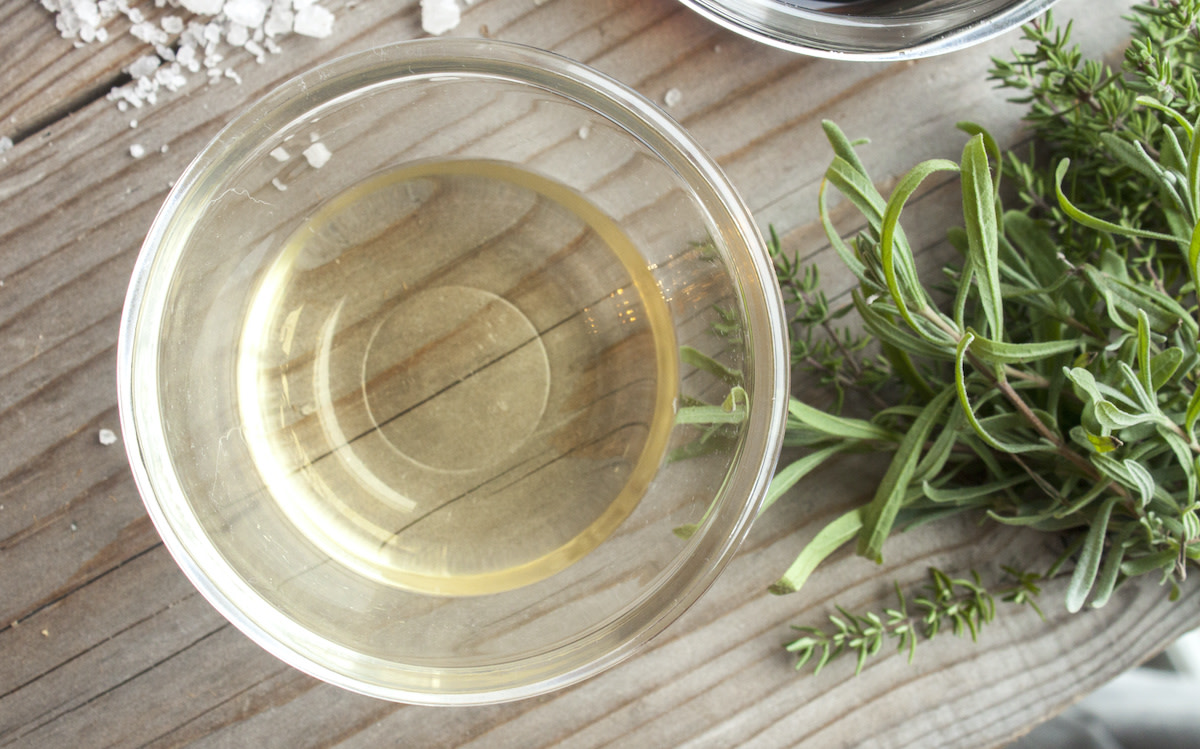Are White Wine Vinegar and White Vinegar the Same?
Written by MasterClass
Last updated: Jan 21, 2022 • 2 min read
Learn about white wine vinegar, white vinegar, and how to use or substitute these types of vinegar in your home cooking.
Learn From the Best
What Is White Wine Vinegar?
White wine vinegar is white wine that has been fermented and oxidized into an acid with a lightly fruity flavor. The distilling process usually takes place in stainless steel vats called acetators that expose the ethanol in the wine to oxygen. The resulting acetic acid is then diluted with water to a palatable acidity, somewhere between five and seven percent. While the provenance of grapes used in something like Italian balsamic vinegar is known (in such case, Trebbiano or Lambrusco), white wine vinegars can be crafted from a blend of wines referred to as “wine stock.”
How to Use White Wine Vinegar
White wine vinegar has a complex, more mild acidic profile, which makes it a good ingredient to add in vinaigrette and salad dressing recipes or pan sauces like hollandaise and béarnaise.
What Is White Vinegar?
White vinegar, also known as distilled vinegar or spirit vinegar, is made by fermenting grain alcohol (ethanol) which then turns into acetic acid. Water is then added to the vinegar, so white vinegar is made of five to ten percent acetic acid and ninety to ninety-five percent water. The result is a clear, sharp vinegar that is relatively neutral in flavor. White vinegar is among the most common and basic kinds of vinegar and is easy to find in any grocery store.
How to Use White Vinegar
White vinegar is the purest distilled version of vinegar, and it tends to have a high acidity (around ten percent). This makes white vinegar a good non-toxic cleaning agent and a pickling liquid for fruits or vegetables. The neutral flavor of white vinegar makes it suitable for salad dressings, marinades, and sauces. Some baking recipes call for white vinegar as a leavening agent. You can also use white vinegar instead of lemon juice when making homemade ricotta cheese.
Can You Substitute White Vinegar for White Wine Vinegar?
The flavors of white vinegar and white wine vinegar can differ sharply, as can their functions outside of culinary use, so substituting one for the other is something you should avoid if possible. Using different types of vinegar interchangeably can change the acidity level of a recipe, which can affect food safety.
- Substitutes for white wine vinegar: Some vinegar substitutes for white wine vinegar include any other mild, clean-tasting vinegar. Rice vinegar, which has a similar flavor profile with a touch of sweetness, is a good substitute. Apple cider vinegar, noted for its numerous health benefits, is also a good alternative. Champagne vinegar and sherry vinegar also can be used as substitutes.
- Substitutes for white vinegar: White vinegar is known for its acidity and sharp, sour taste. For cooking, white vinegar could be substituted with apple cider vinegar or malt vinegar—or sometimes even lemon or lime juice. For pickling or canning, it’s best to stick with actual white vinegar.
Want to Learn More About Cooking?
Become a better chef with the MasterClass Annual Membership. Gain access to exclusive video lessons taught by the world’s best, including Gordon Ramsay, Gabriela Cámara, Chef Thomas Keller, Dominique Ansel, Yotam Ottolenghi, Alice Waters, and more.
